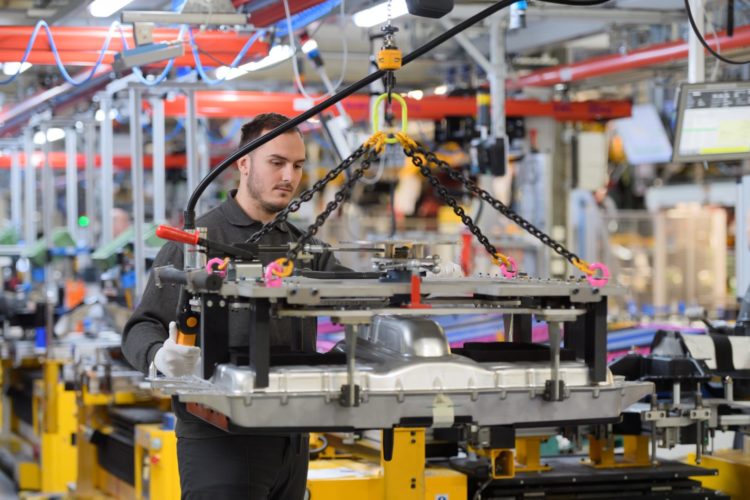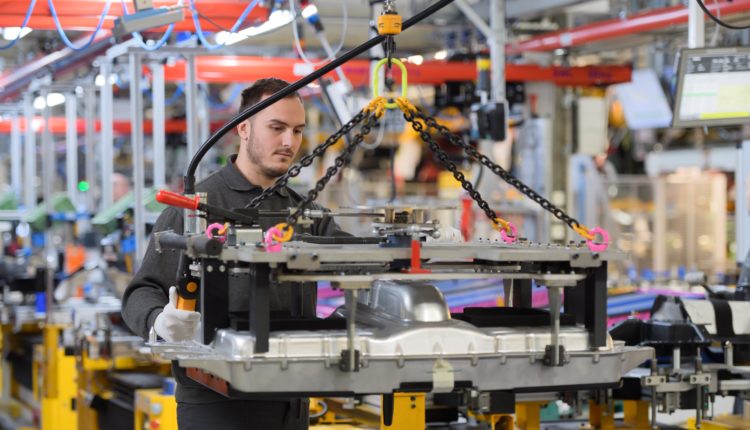An ongoing shortage of semiconductor chips saw UK car production hit a 37-year low in November with the Jaguar Land Rover factory in Merseyside among the hardest hit by the crisis. Tony McDonough reports

UK carmakers saw production levels fall to their lowest level in 37 years as the global shortage of semiconductor chips continues to drag on the sector.
And among the worst hit is Jaguar Land Rover’s factory in Halewood in Merseyside where around 3,700 workers assemble the Land Rover Discovery Sport and Range Rover Evoque models. As recently as October the plant saw a week-long shutdown.
JLRhas suffered similar issues at its other UK factories in the West Midlands and at facilities around the world. Other auto makers are also suffering. Stellantis, which owns the Vauxhall plant at Ellesmere Port, has also seen a significant slowdown in production.
And latest figures from the Society of Motor Manufacturers and Traders (SMMT) illustrates the scale of the problem. They show UK car production fell -28.7% in November to 75,756 units, It was the fifth consecutive month of decline and represents the worst November performance since 1984.
READ MORE: Jaguar Land Rover moves to end chip shortage
It blamed the shortages of semiconductor chips, exacerbated by the disruption caused by the pandemic. The figures also reflect the loss of output arising from the closure of a UK car factory in the summer, a situation that will impact year-on-year comparisons until July 2022.
In November production for both domestic and overseas markets declined, down -18.8% and -30.4% respectively, as 30,487 fewer cars rolled off factory lines. Exports accounted for more than 80% of production, reinforcing the need for smooth international trade, especially with the EU ahead of new customs controls on January 1, 2022
Six-in-ten (60.3%) cars shipped overseas in November headed into Europe. Asia, meanwhile, took 15.6% of UK car exports, the US 13.4% and Australia 1.2%.
Continuing the recent trend, British production of battery electric, plug-in hybrid and hybrid cars took a record share of production, accounting for around a third (32.7%) of all cars made in the month, and more than a quarter (25.5%) over the year-to-date.
Battery electric vehicle output, in particular, was up in November by 52.9% to 10,359 units, hitting a new high of 13.7% of all production, more than double the level a year ago.
Year-to-date, UK car plants have turned out 797,261 units, some 432,794 less than pre-pandemic 2019 and 667,441 off the five-year pre-Covid average for the period of 1,464,702 cars.
Mike Hawes, SMMT Chief Executive, said: “These are incredibly worrying figures, underscoring the severity of the situation facing the automotive industry. COVID is impacting supply chains massively, causing global shortages – especially of semiconductors – which is likely to affect the sector throughout next year.
“With an increasingly negative economic backdrop, rising inflation and COVID resurgent home and abroad, the circumstances are the toughest in decades. With output massively down for the past five months and likely to continue, maintaining cashflow, especially in the supply chain, is of vital importance.
“We have to look to Government to provide support measures in the same way it is recognising other COVID-impacted sectors.”

